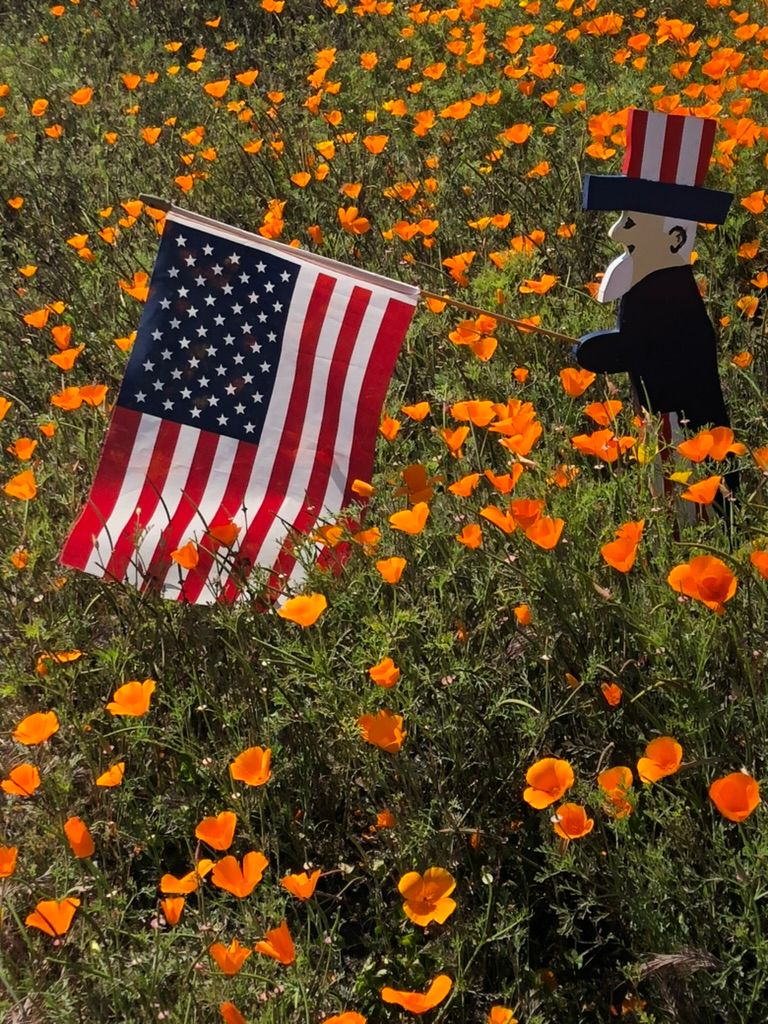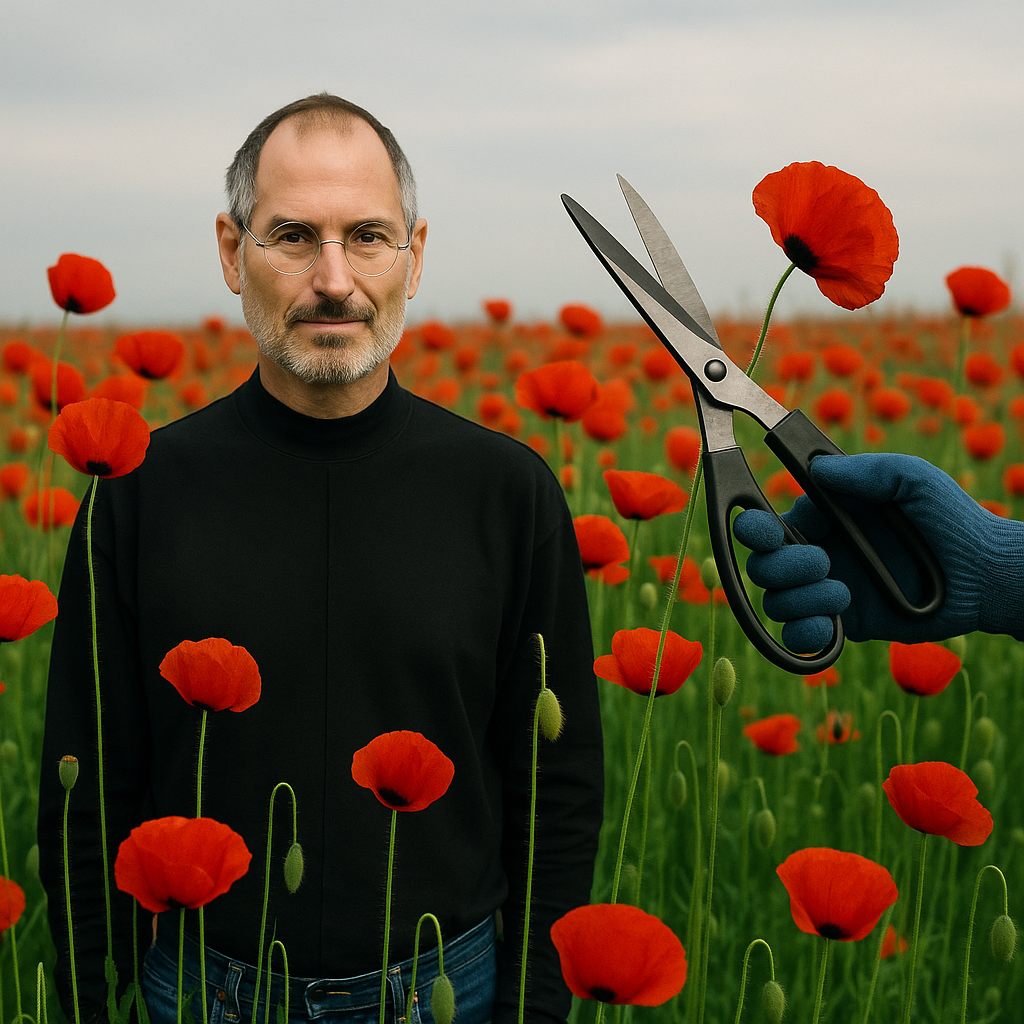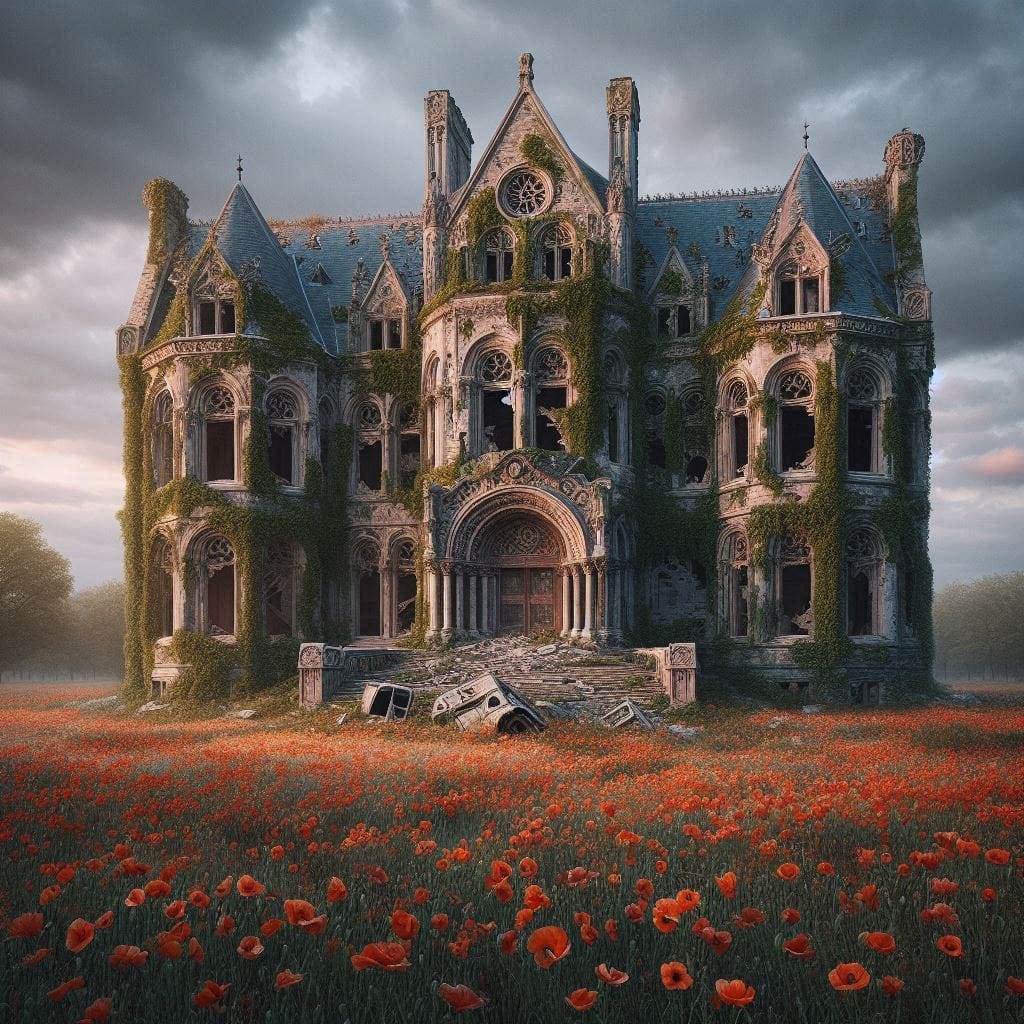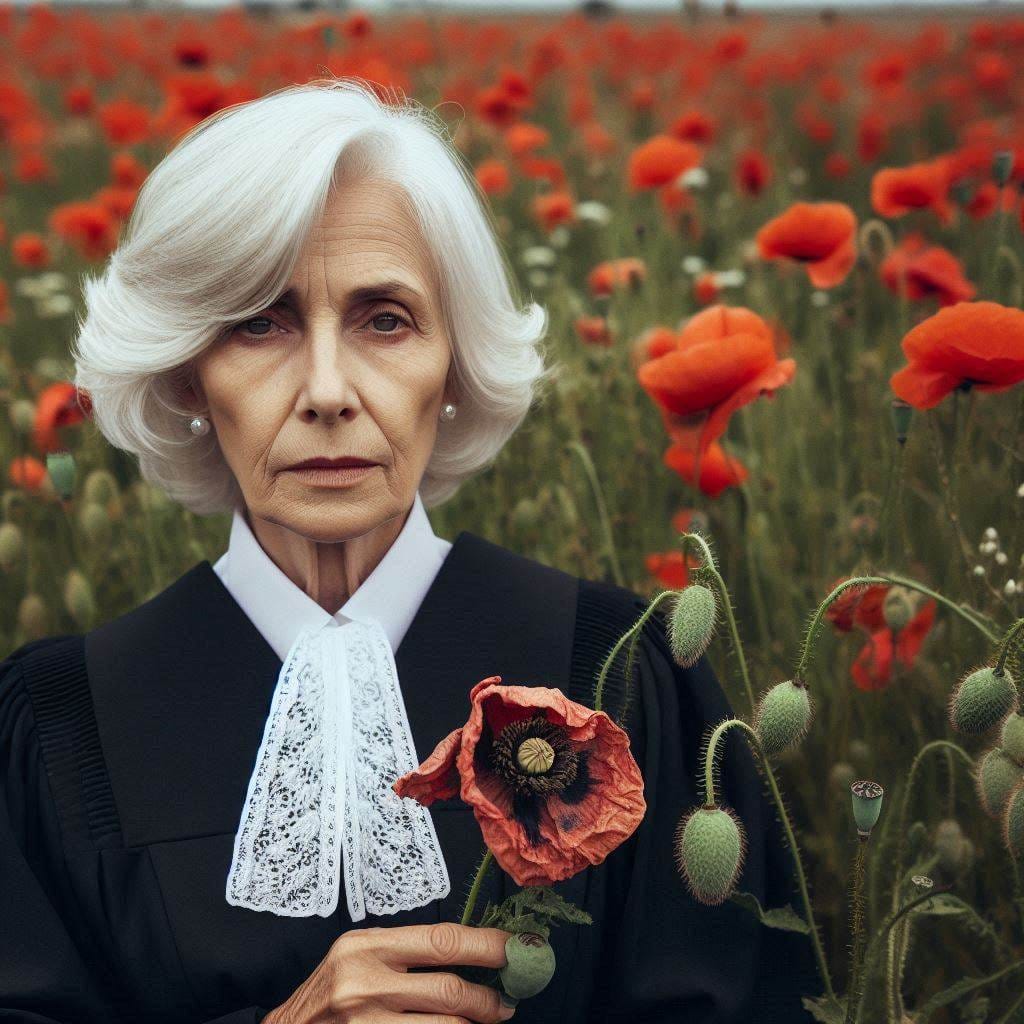National Poppy Day - May 24, 2024.

Brave men rejoice in adversity, just as brave soldiers triumph in war. Lucius Annaeus Seneca
In Flanders Fields
by John McCrae
In Flanders fields the poppies blow
Between the crosses, row on row,
That mark our place; and in the sky
The larks, still bravely singing, fly
Scarce heard amid the guns below.
We are the dead. Short days ago
We lived, felt dawn, saw sunset glow,
Loved, and were loved, and now we lie
In Flanders fields.
Take up our quarrel with the foe:
To you from failing hands we throw
The torch; be yours to hold it high.
If ye break faith with us who die
We shall not sleep, though poppies grow
In Flanders fields.
I thought I would duplicate the history of the Poppy as a remembrance from my book The Tall Poppy Syndrome: The Joy of Cutting Others Down
The Poppy as a Remembrance
Moina Belle Michael was on duty November 9, 1918, two days before an armistice between the Allies and Germany was announced at the Twenty-Fifth Conference of the Overseas YMCA War Secretaries in New York. A soldier passed her desk and left a copy of Ladies Home Journal that contained the poem “We Shall Not Sleep” (an alternative name for “In Flanders Fields”). She was so moved by the poem that she responded with her own, “We Shall Keep the Faith,” and vowed to wear a red poppy as a sign of remembrance for those who fought and were of service to the war.
The day the two poems found their way into the conference, she purchased one large and twenty-four smaller artificial silk poppies. After the conference program honored her that evening, attendees congregated around her, requesting poppies to wear. She obliged but kept one for her coat collar. She then began a crusade to adopt the poppy emblem as a United States memorial symbol.
Madame Anna A. Guérin spoke at the conference about her Inter-Allied Poppy Day idea. In September 1920, the American Legion was the first of the WWI interallied veterans’ groups to adopt the poppy as a remembrance emblem. Her charity’s official US Poppy Day on May 28, 1921—two days ahead of Memorial Day—was the world’s first nationwide Poppy Day. Guérin promoted the sale of poppies throughout the world to raise money for the French, who were hit hard by WWI.
After the adoption of the poppy as the national emblem for remembrance in the US, other nations adopted it, as well, and started selling artificial poppies: Canada, Britain, and Australia in 1921 and New Zealand in 1922. By 1945, 750,000 poppies were dispensed throughout New Zealand, approximately one-half of the population.
The Veterans of Foreign Wars (VFW) began selling French-made artificial poppies for French needs in 1922, and the American Legion followed suit in 1923. The VFW decided American veterans could profit from making and selling artificial poppies, and in 1924 disabled veterans began making and selling the Buddy Poppy in the United States. Presently, the American Legion Auxiliary exchanges crepe-paper poppies for donations in the days surrounding Memorial and Labor Day.
“Just a Common Soldier” was written by another Canadian and published in a 1987 Remembrance Day newspaper column. The poem graces marble monuments at the main office of Veterans Affairs Canada; West Point, New York; and a Nebraska veterans memorial. The poem is a sensation on the internet and was the centerpiece for the 2009 Royal British Legion Poppy Appeal. No poppy is mentioned, but the poet takes a swipe at the politicians (pollies) in good ole Aussie fashion and cuts them down.
Just A Common Soldier
(A Soldier Died Today)
He was getting old and paunchy and his hair was falling fast,
And he sat around the Legion, telling stories of the past.
Of a war that he had fought in and the deeds that he had done,
In his exploits with his buddies; they were heroes, every one.
And tho' sometimes, to his neighbors, his tales became a joke,
All his Legion buddies listened, for they knew whereof he spoke.
But we'll hear his tales no longer for old Bill has passed away,
And the world's a little poorer, for a soldier died today.
He will not be mourned by many, just his children and his wife,
For he lived an ordinary and quite uneventful life.
Held a job and raised a family, quietly going his own way,
And the world won't note his passing, though a soldier died today.
When politicians leave this earth, their bodies lie in state,
While thousands note their passing and proclaim that they were great.
Papers tell their whole life stories, from the time that they were young,
But the passing of a soldier goes unnoticed and unsung.
Is the greatest contribution to the welfare of our land
A guy who breaks his promises and cons his fellow man?
Or the ordinary fellow who, in times of war and strife,
Goes off to serve his Country and offers up his life?
A politician's stipend and the style in which he lives
Are sometimes disproportionate to the service that he gives.
While the ordinary soldier, who offered up his all,
Is paid off with a medal and perhaps, a pension small.
It's so easy to forget them for it was so long ago,
That the old Bills of our Country went to battle, but we know
It was not the politicians, with their compromise and ploys,
Who won for us the freedom that our Country now enjoys.
Should you find yourself in danger, with your enemies at hand,
Would you want a politician with his ever-shifting stand?
Or would you prefer a soldier, who has sworn to defend
His home, his kin and Country and would fight until the end?
He was just a common soldier and his ranks are growing thin,
But his presence should remind us we may need his like again.
For when countries are in conflict, then we find the soldier's part
Is to clean up all the troubles that the politicians start.
If we cannot do him honor while he's here to hear the praise,
Then at least let's give him homage at the ending of his days.
Perhaps just a simple headline in a paper that would say,
Our Country is in mourning, for a soldier died today.
--A. Lawrence Vaincourt
RIP TPs. We thank you for our freedom.
Tall Poppy Syndrome Newsletter
Join the newsletter to receive the latest updates in your inbox.



